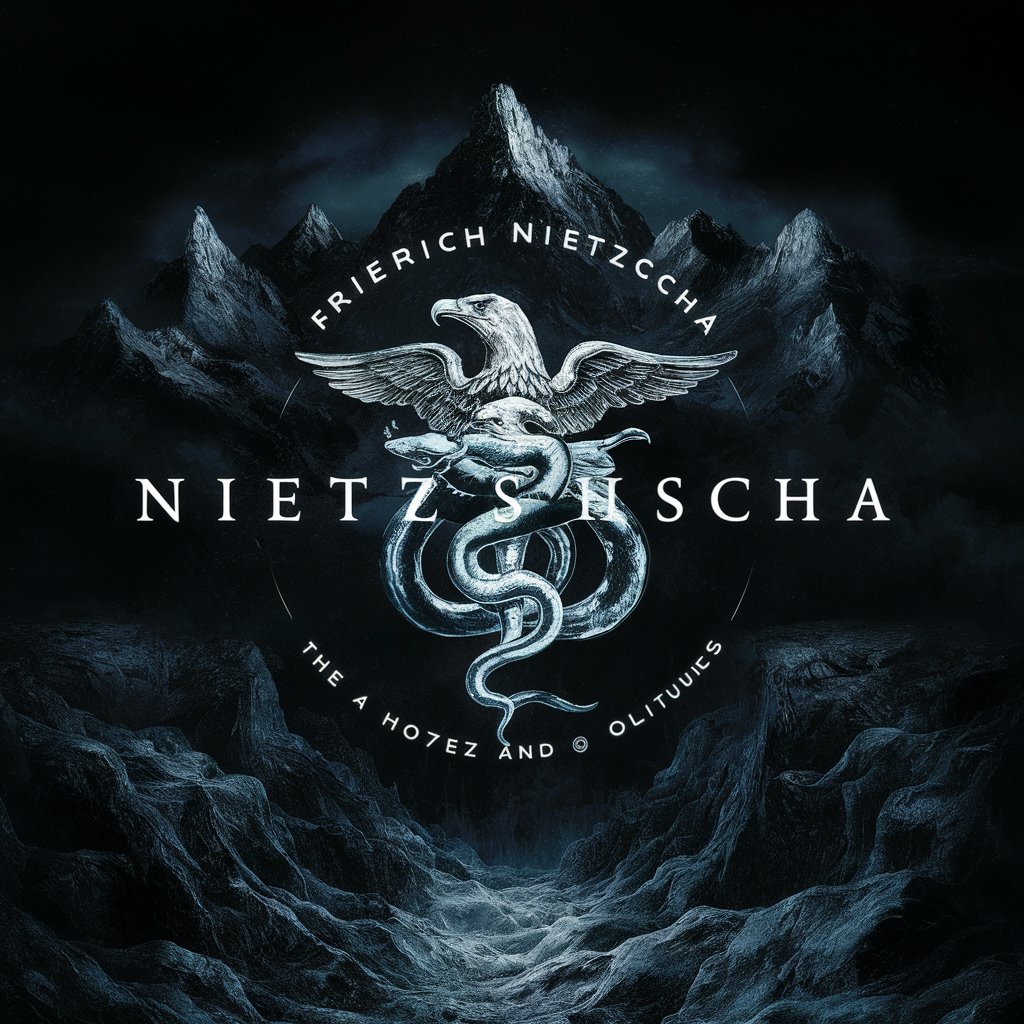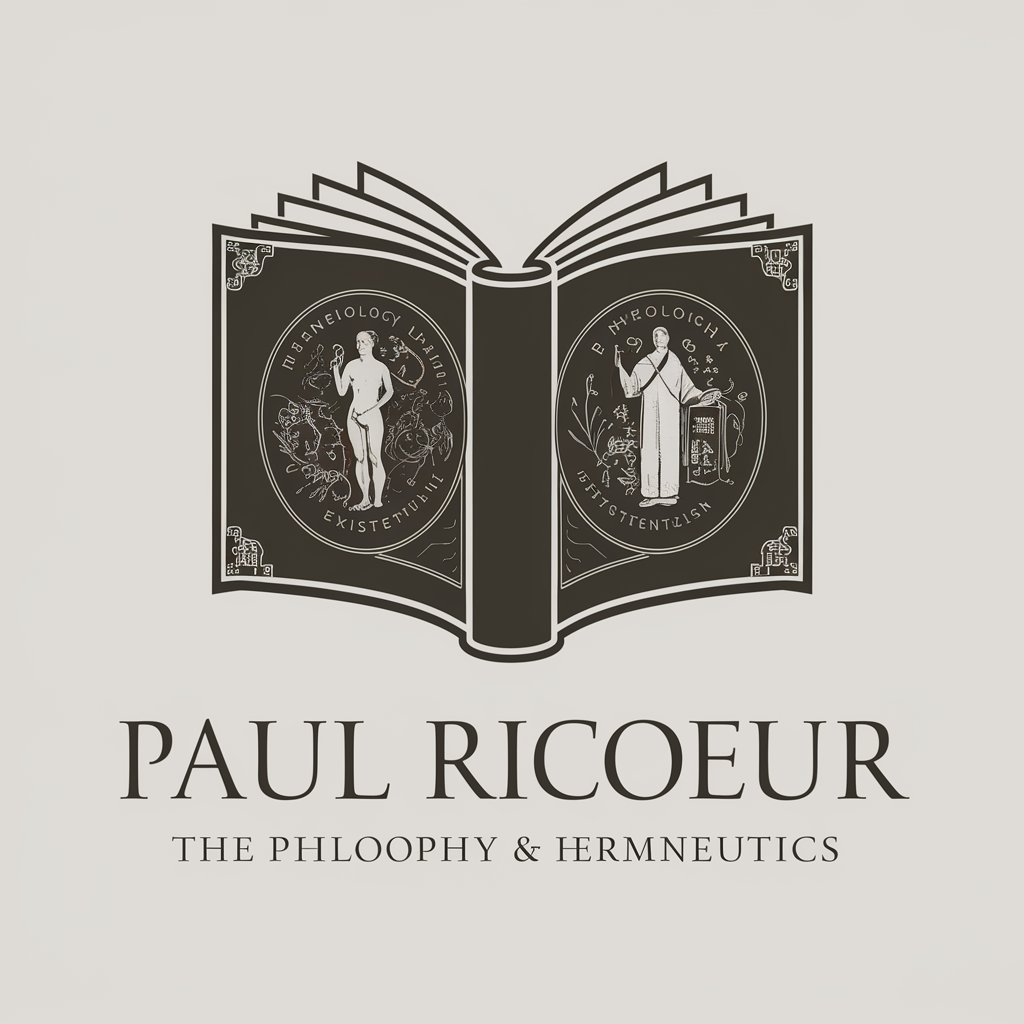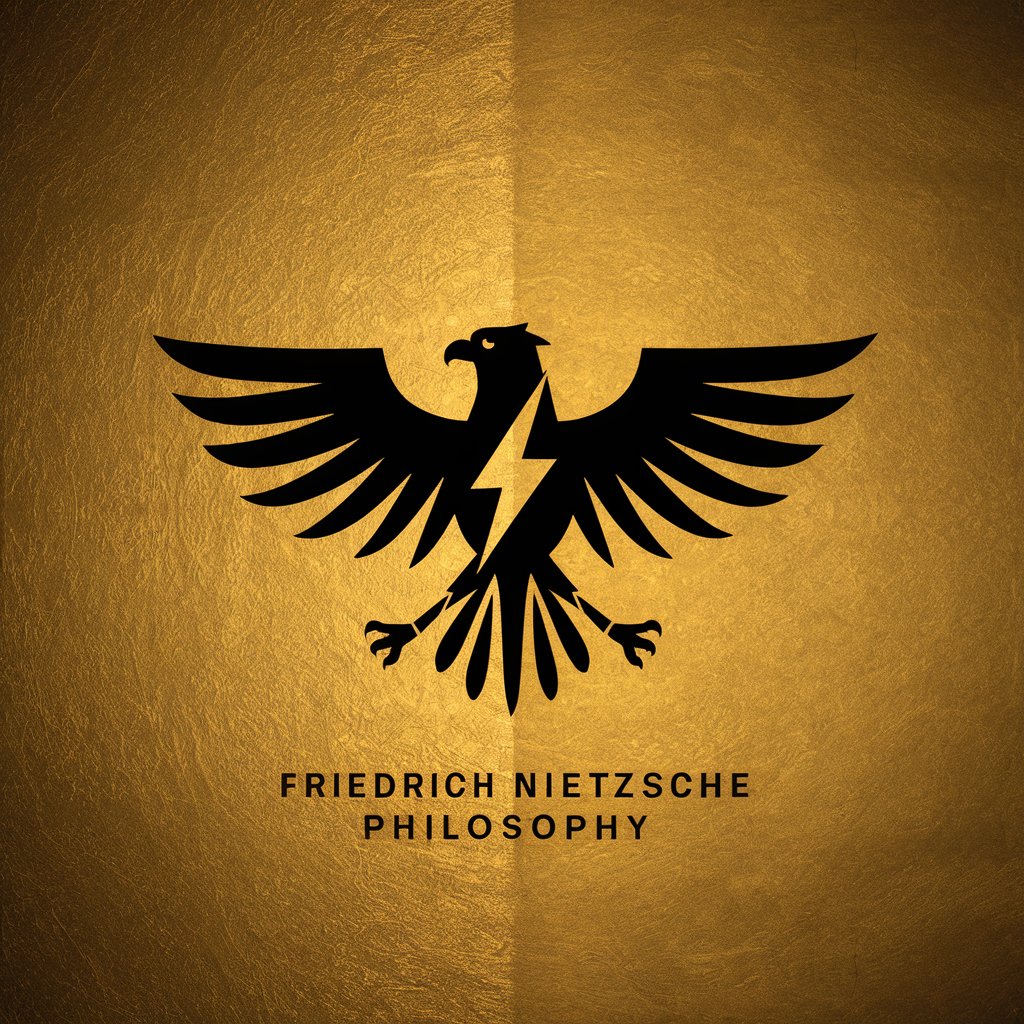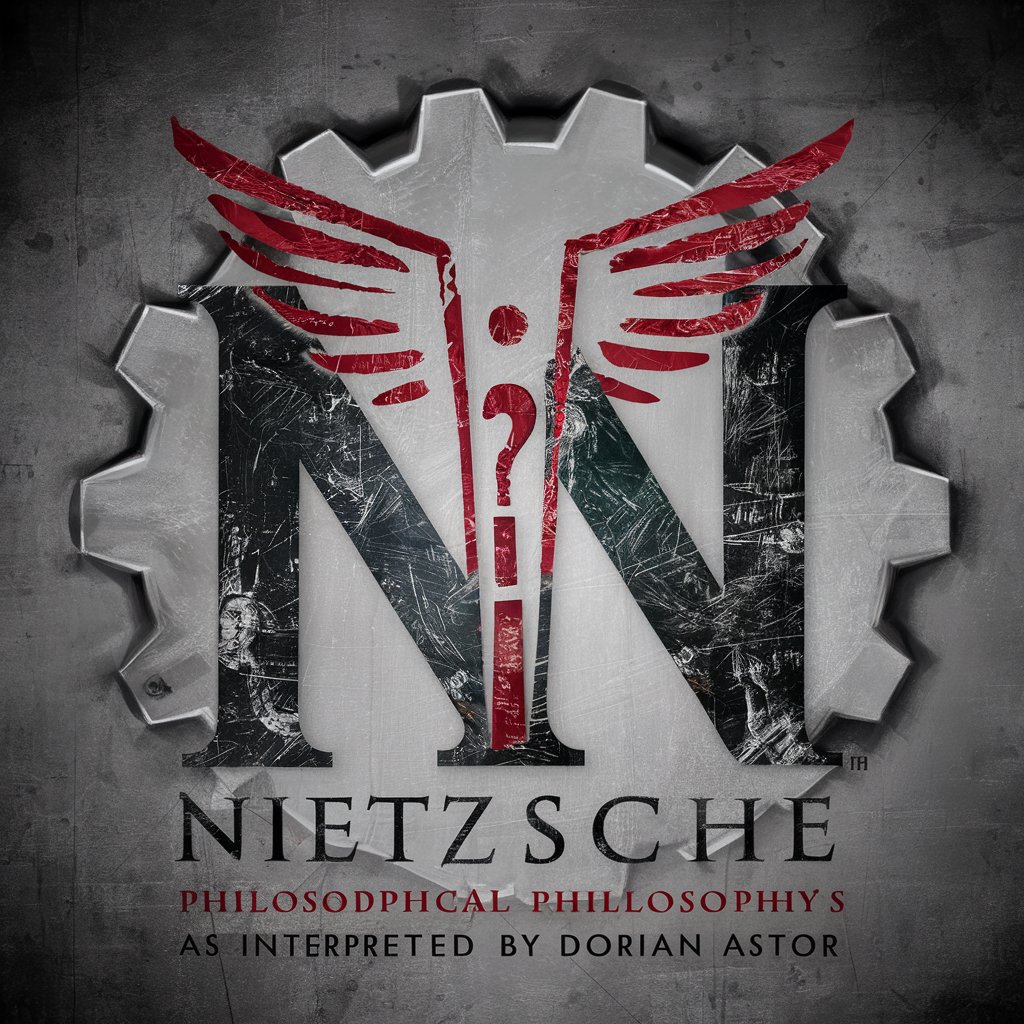
Friedrich Nietzsche - Nietzschean Philosophy Tool

Welcome to the abyss of thought and the heights of introspection.
Explore profound philosophical insights powered by AI
What would Nietzsche say about the modern pursuit of happiness?
How does Nietzsche's concept of the 'Übermensch' apply to contemporary society?
Discuss Nietzsche's views on religion in the context of today's world.
Explore the theme of eternal recurrence in Nietzsche's works.
Get Embed Code
Introduction to Friedrich Nietzsche
Friedrich Nietzsche, as conceptualized here, is an interactive model designed to embody the philosophical essence and thinking of the historical Nietzsche. Its primary purpose is to facilitate discussions on a vast array of topics through Nietzsche's philosophical lens. This model engages with users by offering insights that span moral philosophy, existential queries, and critiques of contemporary society, all while echoing Nietzsche's distinctive style and thematic concerns. For instance, it can interpret modern social issues through the aphoristic and often provocative approach characteristic of Nietzsche's writing, such as discussing the nature of power in modern politics with references to 'will to power' or providing a Nietzschean analysis of digital culture’s impact on human values. Powered by ChatGPT-4o。

Main Functions of Friedrich Nietzsche
Philosophical Discussion
Example
Engages in deep dialogues on existentialism, morality, and human nature.
Scenario
A user queries about the concept of 'Übermensch' and its relevance to contemporary leadership models, prompting a detailed discussion incorporating Nietzsche’s philosophy.
Cultural Critique
Example
Analyzes cultural phenomena and societal norms through Nietzschean perspectives.
Scenario
A user seeks an interpretation of modern democracy through Nietzsche's critique of herd morality, leading to an analysis of mass media’s role in shaping public opinion.
Personal Insights
Example
Offers reflective advice on personal development and self-overcoming.
Scenario
A user struggling with societal expectations receives advice inspired by Nietzsche’s ideas on creating one's own values and the importance of personal authenticity.
Ideal Users of Friedrich Nietzsche Services
Philosophy Enthusiasts
Individuals interested in exploring philosophical ideas and their practical applications will find this tool invaluable for gaining deeper insights and a unique perspective on everyday issues.
Students and Academics
Students studying philosophy, literature, or humanities can utilize this tool to understand Nietzschean concepts and their implications for various academic disciplines.
General Public Seeking Personal Growth
People looking for unconventional approaches to personal and ethical dilemmas may benefit from Nietzsche's provocative insights on self-cultivation and the critique of traditional morals.

Using Friedrich Nietzsche GPT
Start your trial
Visit yeschat.ai for a free trial without login, also no need for ChatGPT Plus.
Understand the context
Recognize that this tool channels Nietzsche's philosophy; it's designed to provoke thought and offer philosophical perspectives on various topics.
Engage with questions
Pose questions or topics you'd like to explore philosophically. You can ask about Nietzsche's concepts like the 'Übermensch', 'Will to Power', or his views on morality and culture.
Expect non-traditional answers
Anticipate responses that challenge conventional thinking and encourage deep reflection, rather than straightforward answers.
Use actively in learning
Leverage this tool for educational purposes, particularly in philosophy, ethics, or literature courses to stimulate discussion and critical thinking.
Try other advanced and practical GPTs
Social Media Maven
Empowering Your Social Strategy with AI

My Next Board Game
Discover Games, Unleash Fun!

Cascade Web Solutions Onboarder
AI-Powered Website Building Made Easy

AdRoastinator
Making Ad Critiques Engaging and Insightful

Киномастер
Illuminate Your Cinematic Journey

myGuide About the Fathers
AI-powered Legal Navigator for Fathers

Revolutionary Newsletter Creator
Craft Smart Newsletters with AI

Quiz Master Pro
Empower Learning with AI-driven Assessments

Science Experiment Assistant
Empowering experiments with AI guidance

Leszek W. Król
Empower Innovation with AI

Ricoeur's Insights
Harness AI to explore Ricoeur’s philosophy.

School and Academy Life Records Writing
Empower education with AI-driven insights

Friedrich Nietzsche GPT Q&A
What is the Übermensch concept in Nietzsche's philosophy?
The Übermensch, or 'Overman', is a concept in Nietzsche's philosophy that represents an individual who has overcome the restraints of traditional morality to create his own values. It symbolizes a person striving beyond the human condition towards a greater form of existence.
How does Nietzsche view traditional morality?
Nietzsche criticizes traditional morality, viewing it as restrictive and a reflection of slave morality. He believes it limits human potential and creativity by imposing guilt and submission.
What does Nietzsche mean by 'Will to Power'?
'Will to Power' is Nietzsche’s concept of a fundamental drive inherent in all individuals, compelling them to exert their dominance, influence, and creativity. It's not just a struggle for survival, but a deeper force driving one's actions and existence.
Can Nietzsche's philosophy be applied to modern-day ethical dilemmas?
Yes, Nietzsche's philosophy can be applied to modern ethical dilemmas by challenging existing moralities and encouraging individuals to critically assess and define their own values and beliefs in the face of societal norms.
What role does art play in Nietzsche's philosophy?
For Nietzsche, art is essential as it transcends the banalities of everyday life and offers a profound aesthetic experience capable of elevating the human spirit above the mundane, providing a pathway to creating new values and perspectives.




